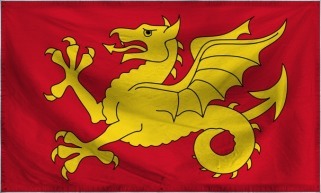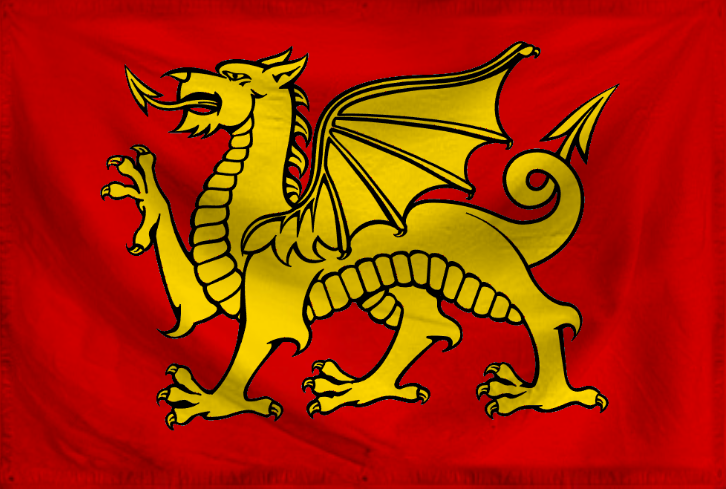Sir William Ælric, 1st Earl of Treague
'Qui audet, vincit' ~ Who dares, conquers.




Be it established this instrument of convention of the wills of Mann, to the benefit of our posterity, as the inheritors of the legacy of our forefathers, those most venerable progenitors of our noble nation. This Charter shall, as the supreme law of the County of Cambria, institute the rights of Mann and his Government, that which rules in the name of our most esteemed Lord, the Earl of Cambria.
It is such that the virtues of Mann embrace Mannkind as a noble species which should be offered fundamental freedoms which shall not be stripped by the elected state by any means from any of its governed subjects. These rights include;
The fundamental right to freedom of worship.
The fundamental right to the livelihood of all peoples. The right to live and exist freely shall not be abridged unjustly or onerously.
The fundamental right to the liberty of all subjects of the County of Cambria, barring only those which laws supersede the authority of the Earl and his Government.
The fundamental right to property, including the freedom from onerous seizure of individual assets or capital by the elected state without credible suspicion of treason or conspiracy.
The fundamental right to commerce and exchange, including those contracts which are private and mutually assented to, the latter being declared legal and valid so long as they are judicially enforceable.
The fundamental right to criminal trial, including the convention of a jury of the peers of the accused, in an expedited and orderly fashion, organized by the judiciary subservient to the Earl of Cambria.
The fundamental right to the election of a body, hereafter referred to as the Grand Parliament, which might represent their popular interests in the form of a provisional or standing Government, which rules and governs domestically in the name of the Earl, so long as such institution’s inauguration or opening has not already suffered prorogue at the hands of the Executive Privilege of the Earl, nor has it been disbanded for more than three months since the most recent election cycle, nor has a rump Parliament been convened in the event of war or famine.
Any such rights which have not been particularized in this charter are reserved at the Earl’s prudence to be either doled out to the people or earmarked from the public trust until a time determined to be most appropriate.
The people of the Realm have been granted the opportunity to exercise their will in the form of a Grand Parliament, in which their elected representatives will measure popular opinion with the security and prosperity of the Domain in order to achieve the ideal of effective governance. In so doing, this charter establishes such following structure of the aforementioned Parliament:
Its assembly shall be bicameral, here be established a lower chamber, named the House of Commons, consisting of 50 members, elected from the populace every six weeks. Fifteen of such members shall be elected from each Viscounty in the Grand County of Cambria to fulfill this total.
Here also established be the House of Peers, consisting of 10 nobles, 2 of whom are selected by each Viscount, in order to fulfill this total.
All proposed legislation must be introduced in the House of Commons, and, having been passed by at least a simple majority, will then advance towards the House of Peers, which must similarly pass such legislation by simple majority.
Should a proposal pass both chambers of the Grand Parliament, it is incumbent upon the Head of Government, hereafter referred to as the First Minister, to be responsible for the sealing of the document and its deliverance to the Earl for approval.
The Office of the First Minister being established, it is recognized that such personage serves as the Presiding Speaker of the House of Commons and as such, their authority extends only to the House of Commons; however they coordinate with the other house of the Grand Parliament and the Earl’s Ministers in order to ensure the good administration of the realm. It is additionally recognized that such position is elected by the people every twelve weeks, being the supreme power of the elected state which acts on behalf of the domain and the governed. The First Minister is elected by the people and confirmed by the Earl of Cambria, at whose pleasure the First Minister serves.
The Earl wields the Executive Prerogative, otherwise known as a legislative veto, which he exercises by either refusing to sign legislation into law, or interrupting the legislative process by stating “I forbid.”
Upon the reception of the legislative veto, the legislative process restarts and the legislation must be either amended or the voting process takes place again; this time with the requirement of a 4/5ths majority in both houses. If such is achieved, the Royal Prerogative is overridden and the legislation passes.
The Grand Parliament reserves the right to convene in times of emergency, prior to receiving the command of assembly by the Earl of Cambria. Such issues discussed, or called to motion must be voted on by a formalized parliament at the soonest available time. Such legislation passed in an emergency meeting shall not carry past the next formal convening of parliament.
Adjacent to the elected government endowed to the enlightened Cambrian people, the Earl employs a number of Counsellors of State whose positions are unelected and such members serve at the leisure of our common liege. These individuals make up the Unelected State, and these Officers have the following such ministries and responsibilities;
The Counsellor of Defense, whom is responsible for the garrisons and defense of the realm. This Officer is the Head of the Provisional Armed Forces, State Militias, Garrisons, and other Retinues to ensure the security of the county.
The Counsellor of Justice, whom is the Chief Judicial Officer of state, oversees the court system, enforces the law in the country, including all of those legislated by the Grand Parliament.
Counsellor of the Interior, whom is the Chief Diplomat of the Realm, oversees the census, handles foreign affairs with other counties, and handles citizenship requests. The Counsellor of the Interior is also responsible for affairs of state, including professional licencing.
The Counsellor of Infrastructure, whom is the Chief Commerce and Logistics Officer of the Realm, oversees housing, municipal development, the building of roads, bridges, and dams, and coordinates with guilds and other businesses to improve the realm’s attractiveness to business ventures and related enterprises.
The Counsellor of Health, Science, and Agriculture, whom is the Chief Education and Horticulture Officer of the Realm, and whose responsibilities include the overseeing of agricultural logistics, the advancement of education and the sciences, and the prevention of disease or epidemic in the county domain.
Chancellor of the Exchequer, whom is the Chief Monetary Officer of the realm, and who oversees the treasury, the expenditures of the realm, audits at will both elected and non-elected bodies, can set minimums and maximums, and reject legislation on the grounds of financial insufficiency.
The Viscounts, whom are appointed nobles whose status is recognized as the most preeminent aristocrats in the Grand County of Cambria. They are responsible for overseeing the subdivisions of the Grand County with a moderate degree of autonomy and have the privilege of establishing their own regional parliaments, though the latter too shall be subservient to the Grand Parliament of the County of Cambria.
The process of amending the Constitution requires a petition called a Petitio Rectificatio, or petition for redress, which can be called for by motion of the Grand Parliament after achieving a 4/5ths majority in both houses. Once commenced, a representative called a Popular Tribune will be elected democratically by the people to levy the peoples’ interest towards the Counsellors of the Realm as to why the realm’s constitution should change. Should 4/5 Counsellors approve of the the amendment, the motion carries and the amendment is made into law.
The Earl of Cambria holds the Executive Prerogative to summon the houses of parliament to convene.
The Earl of Cambria holds the Executive Prerogative to prorogue parliament, and order the lawful cease of legislation until the next election cycle.
The Earl of Cambria holds the Executive Prerogative to dissolve parliament. The Grand Parliament is established upon the behest of the Earl of Cambria, and the power to dissolve parliament indefinitely shall be held at the hands of the Earl.
The Earl of Cambria holds the Executive Prerogative to enact legislation prior to the legislative process, if a consensus cannot be made, or during times of emergency. Such legislation shall be voted on by parliament at the soonest available time, or until a censuses is made.
'Qui audet, vincit' ~ Who dares, conquers.